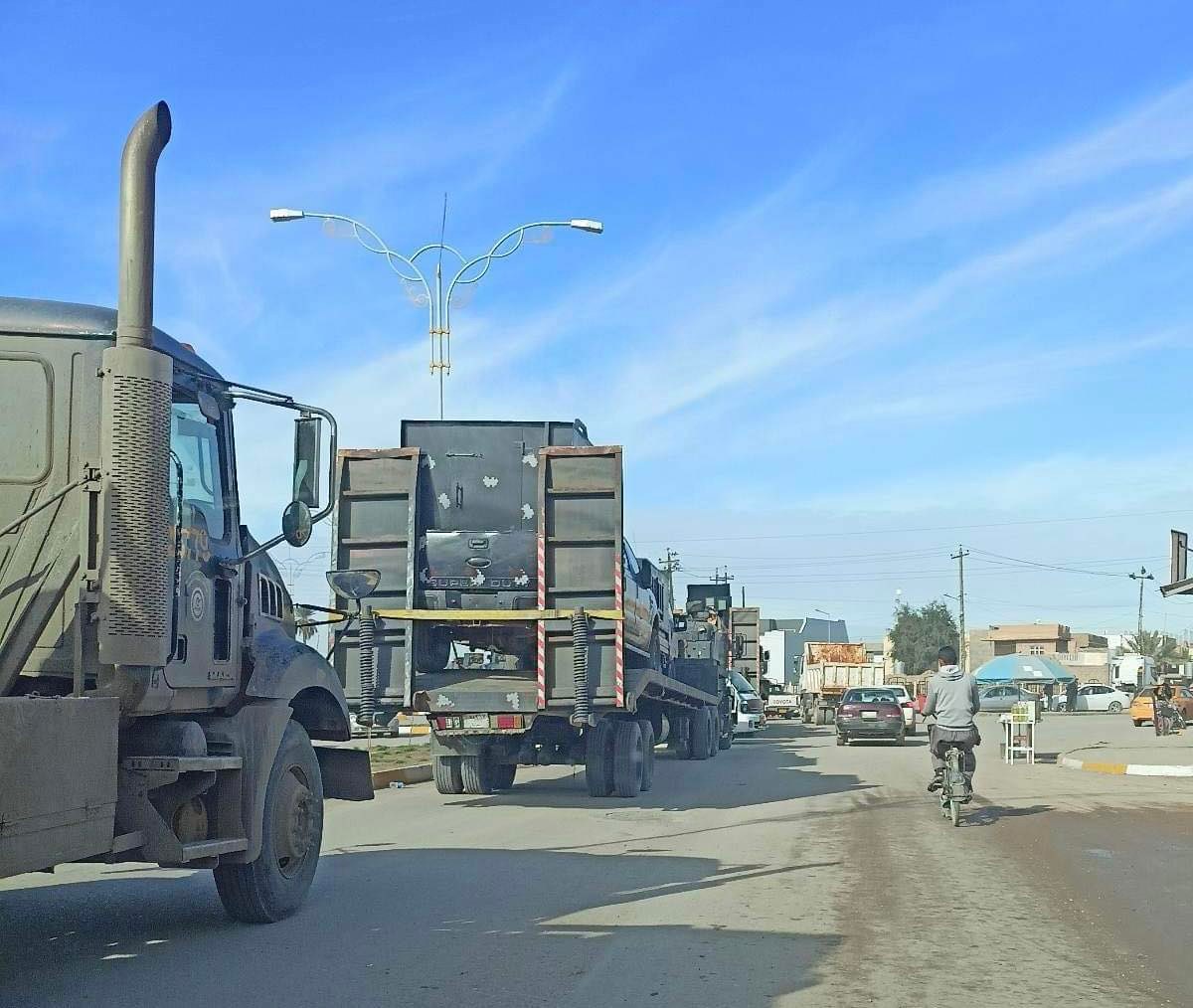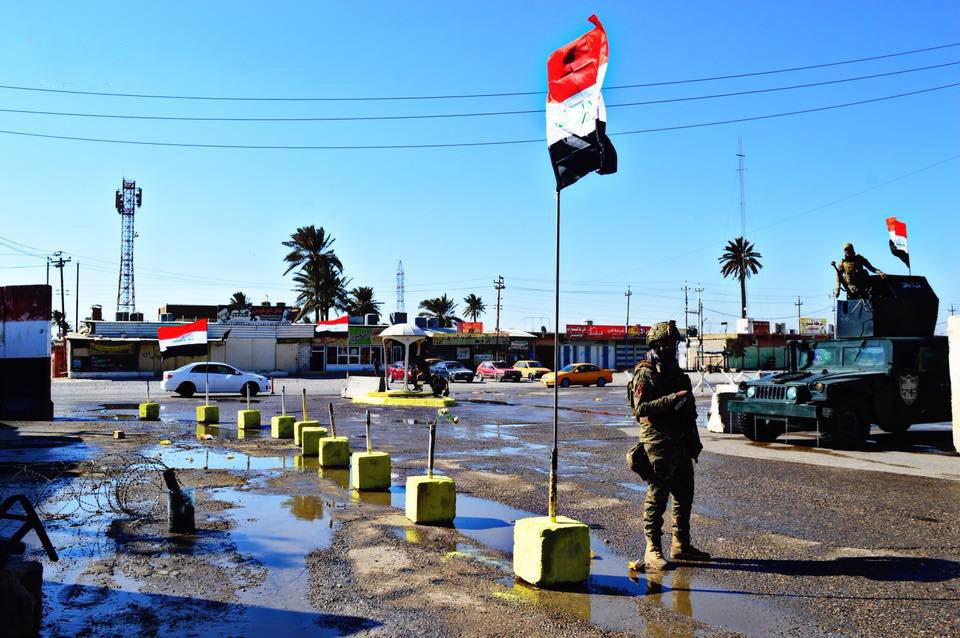After years of being stationed in the Kurdish neighborhoods of Tuz (Duz) Khurmatu district, the Rapid Response Forces left their headquarters and checkpoints that they supervised for the Iraqi Federal Police forces and other forces in those areas, as part of a series of security changes in Salahaddin Governorate.
Security changes embarked in Tuz Khurmatu district, and Federal Police forces were sent to the area to replace the Rapid Response Forces.
End of January, the Iraqi federal police withdraw from borders of Kirkuk province, and were replaced by two brigades of the Iraqi army, sources in army intelligence told KirkukNow. Both brigades were deployed at the outskirts of Hawija district & Rashad sub-district, south of Kirkuk, while the local police remian in charge of security at the center of the cities and towns.
A security source, on the condition of anonymity, told KirkukNow, “The Rapid Response Forces withdrew from all checkpoints, and the Federal Police and another force known as the Commando Forces were stationed there.”
The Rapid Response Forces of the Iraqi Ministry of Interior were deployed in Tuz Khurmatu early 2018, to enforce the law after the events of October 16, 2017, and the displacement of thousands of Kurdish citizens who were unable to return under the pretext of the lack of stability in the security situation.
The multi-ethnic district of Duz Khurmatu, located 70 kilometers south of Kirkuk and part of Salahaddin province, is the only disputed town of the province and one of the disputed territories between Erbil and Baghdad, home to 150,000 Turkmens, Kurds and Arabs.
The predominantly Sunni province of Salahaddin, about 135 kilometers north of the Iraqi capital, once home for Saddam Hussein, is under the control of Iraqi Security Forces ISF including the Shia-led paramilitary forces known as al-Hashid al-Shabi, the Popular Mobilization Forces PMF.

Tuz Khurmatu district, like other disputed areas between the federal government and the Kurdistan Regional Government KRG, fell under the control of the forces affiliated with the Iraqi government after the withdrawal of the Peshmerga from it, in the wake of the strained relations between the Iraqi government and the KRG due to the repercussions of the independence referendum in the Iraqi Kurdistan Region and the disputed territories in September 2017.
Mulla Karim Shakur, a Kurdish member of the Iraqi Parliament and a member of the Parliamentary Defense and Security Committee, told KirkukNow that they do not mind the security changes that were made by the Iraqi government, and that they only intervened to restore the homes of the Kurds in which security forces were present.
“The new security forces are the same as their predecessors.”
(KirkukNow) indicated in a previous report that 200 houses and 100 shops and stores in the predominantly-Kurdish Komari (Republican) neighborhood of Tuz Khurmatu district were burned or looted, and 50 homes belonging to Kurdish officials, Peshmerga affiliates and volunteers were blown up as a result of the clashes between the Iraqi government forces and the Kurdish Peshmerga forces in the midst of the events of October 16, 2017.
Tayeb Ghafoor, a resident of Tuz Khurmatu, told KirkukNow, “The response of the Rapid Response Forces was very good to us, and the residents of the district were convinced of it.”
According to the agenda of the new cabinet of the Iraqi government and the new Iraqi prime minister who took office last October, the presence of military forces, such as the army, the PMF and the federal police in cities, must be ended and the security file should be handed over to the local police.
Years ago, it was proposed to form a joint force from the components of Tuz Khurmatu, consisting of 450 locals to be employed by the state, but the proposal did not see the light of day.






